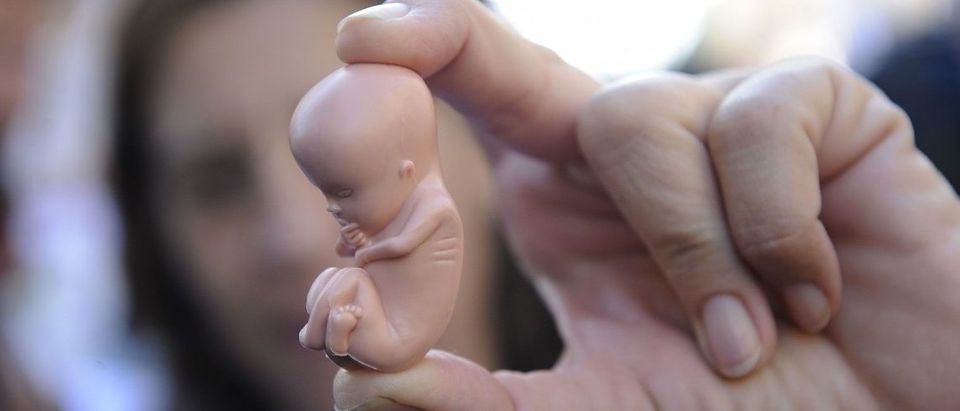Today’s legal abortion clinics are the true “back alleys” of abortion mythology. And more than four decades after Roe v. Wade, hundreds of disreputable abortion providers are hoping that the Supreme Court’s June 2016 decision invalidating Texas’ abortion patient safety law gives them the green light to increase profits by mainstreaming unsafe and substandard abortion care.
Standing in the way are the growing pro-life majorities in state legislatures across the country that are actively seeking to remedy common abortion industry abuses such as failing to maintain safe and sanitary facilities, allowing unqualified staff to provide patient care, and continuing to use expired medications and medical supplies. AUL’s just-released 2017 Life List showcases their successful efforts to combat the profit-maximizing tactics of the increasingly dangerous abortion industry.
Oklahoma, Kansas, Louisiana, Arkansas, and Arizona, the Life List’s top states, enforce comprehensive abortion facility regulations and conduct regular inspections of clinics, while many of the List’s worst states, including Washington, California, Nevada, Connecticut, and Hawaii, prioritize mere access to abortion over women’s health and safety, adopting laws effectively prohibiting the enactment of protective abortion measures including facility regulations.
As documented in Unsafe: How The Public Health Crisis in America’s Abortion Clinics Endangers Women, a recently released investigative report from Americans United for Life, evidence collected from 32 states establishes that the practice of abortion in America has devolved into the “red light district” of medicine and is populated by suspect and substandard providers. Since 2008, at least 227 abortion providers have been cited for more than 1,400 health and safety deficiencies.
The Supreme Court’s recent decision in Whole Woman’s Health v. Hellerstedt, prioritizing access to abortion facilities and abortion industry profitability over women’s health and safety, threatens to exacerbate this crisis. The problem of substandard abortion care will worsen unless pro-life Americans and their elected representatives act to further reverse the abortion industry’s systemic rejection of medically appropriate health and safety mandates.
AUL’s Women’s Protection Project is the premier legal blueprint for protecting women and their children from an under-regulated and avaricious abortion industry. American women deserve more than the abortion industry’s false promise that “mere access” to abortion guarantees their safety and well-being. After all, as Unsafe thoroughly documents, squalid abortion clinics across the nation continue to provide “mere access” to abortion, and women are paying the price for this “access” with their lives, their fertility, and their future health.
Despite striking down Texas’ abortion patient safety standards, the Supreme Court simultaneously affirmed that states may still regulate abortion to ensure patient safety and to confront dangerous or substandard abortion providers. The Court specifically acknowledged the importance of abortion facilities being “inspected at least annually” and the need to include appropriate enforcement mechanisms, such as civil and criminal penalties, in state abortion laws and regulations.
As part of the release of the 2017 Women’s Protection Project, AUL is promoting our groundbreaking Enforcement Module that mandates regular inspections for abortion facilities and includes the strongest and most comprehensive enforcement options for pro-life laws.
A new legislative resolution included in the Project allows pro-life Americans and their elected representatives to express displeasure with Supreme Court’s decision in Hellerstedt and to draw much-needed attention to the national epidemic of substandard abortion practices. Further, to assist legislators in fulfilling their duty to protect women from inferior medical care, AUL is also providing a model letter for state legislators to request inspections of abortion facilities and access to recent inspection reports.
Driven by the evidence detailed in Unsafe and by frustration with the Supreme Court’s failure to strike a decisive blow for women’s safety, state legislatures around the country are already considering measures to protect women and their unborn children from the harms inherent in abortion and in substandard abortion facilities. Health and safety standards for abortion facilities, limits on dangerous late-term abortions, the elimination of state funding of abortion providers, enhanced informed consent requirements such as ultrasound mandates, and improved protections for minor girls are high priorities for state legislators.
Clearly, the states remain a key battleground in the defense of life. State legislatures across the country continue to break new ground in exposing the malfeasance of the abortion industry and in protecting women and their children from the negative consequences of abortion. This promising trend is likely to continue in 2017, bringing us closer to the complete rejection of the abortion industry’s intentionally deceptive propaganda that mere access to abortion protects maternal health and that abortion, as currently practiced, is safe.
Attorney Denise M. Burke is Vice President of Legal Affairs with Americans United for Life and is Editor-in-Chief of AUL’s seminal publication, Defending Life, an annual compendium of legal and policy analyses on critical and emerging life issues and a source of model legislation.


